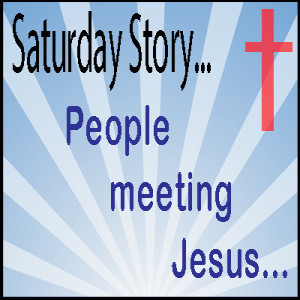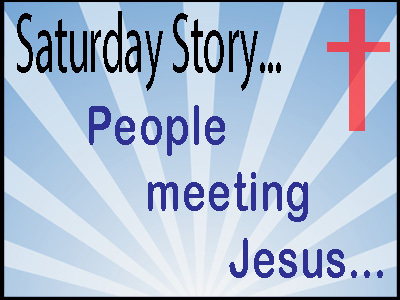
G’day and welcome to Partakers Christian Podcasts! Join us for uplifting Bible teaching, inspiring readings, heartfelt worship, powerful prayers, and fascinating church history. Whether you’re new to faith or growing deeper in your journey, we’re here to encourage and equip you. 🎧 Tune in, interact, and be inspired—wherever you are in the world.
Episodes

Saturday Sep 07, 2024
Leviticus 9-10 - Obedient Service of God - Partakers Bible Thought
Saturday Sep 07, 2024
Saturday Sep 07, 2024
Obedient Service of God
Introduction
Take for instance the food laws. We know in the New Testament that all food is now permissible, whereas under the Old Testament, certain foods were not permitted to be eaten. In the New Testament, the Apostle Peter had a dream in which all food was declared clean!It is also wise, not to see them as merely a list of "not do" statements, but also as "do statements".
Rather, we should see them as a love letter from a God who wants to save His people from distress and anxiety in order to give them a life of peace, unity, health and a joyful life in all its fullness.All these laws were to lead ancient Israel to be a holy nation. Holiness was about being set apart for a purpose and making wise, conscious decisions about what was right or wrong. It involved being obedient to God and keeping His decrees and regulations.
Being holy, involved having a lifestyle, which was contrary to the cultures surrounding them. To be holy was a lifestyle choice of worship, to reflect their holy God.They were called to be loyal! Called to be distinct! Called to worship! What has all this got to do with us? Where does the Day of Atonement and these laws fit into the life of a Christian in the 21st century? We will take a look in the third part in al little while!
Outline:
Introduction
- Great joy Leviticus 9:22-24
- Great tragedy Leviticus 10:1-11
- A God of Judgement
- A God of Wrath
- So what’s all this got to do with us today?
- New Covenant?
- Called to service
- Judged for our service
Conclusion
Listen to the mp3 file to see what this fabulous piece of Scripture is about and how it is relevant to you today...
Tap or click here to save/download this as an audio MP3 file

Monday Jul 15, 2024
WOW Word of the Bible 6 - Words
Monday Jul 15, 2024
Monday Jul 15, 2024

Words!
Today's WOW Word is about Words! Words have power! Did you know that? Here is what Solomon said about them...
Proverbs 15:1 “A gentle response defuses anger, but a sharp tongue kindles a temper-fire”
Proverbs 15:4 “Kind words heal and help! Cutting words wound and maim”
Proverbs 15:23 “Congenial conversation—what a pleasure! The right word at the right time—beautiful! “
Proverbs 15:26 “GOD can't stand evil scheming, but he puts words of grace and beauty on display.”
Download the mp3 using the available links, to hear what Alphy has to say about the Bible and our use of Words in every day life...
Right Mouse click or Tap here to save this as a MP3 file

Saturday Jul 13, 2024
Saturday Story - Life
Saturday Jul 13, 2024
Saturday Jul 13, 2024
Saturday Story
People meeting Jesus
6. The story of Life from the Faroe Islands...
We continue apace into the twentieth century and hear the story of a friend of mine. Her name is Life and she is from the Faroe Islands. Let's look together at how and why she started her Christian journey and the relevancy of Jesus Christ to her life! Come and listen to her story of faith...

Saturday Jun 01, 2024
Saturday Testimony Story - Naz
Saturday Jun 01, 2024
Saturday Jun 01, 2024
Saturday Story
People meeting Jesus
The story of Naz...
Today we are hearing the story of Naz from Bangladesh... Come and listen to his story of faith... It is in the languages of English and Bangla... It was recorded in a busy Somerset cafe, so there is some minimal background noise...
You can now purchase our Partakers books! Please do click or tap here to visit our Amazon site!
Click or tap on the appropriate link below to subscribe, share or download our iPhone App! ![]()
![]()
![]()
![]()
![]()
![]()
![]()
![]()

Saturday May 18, 2024
Saturday Story - Malcolm Muggeridge
Saturday May 18, 2024
Saturday May 18, 2024
Saturday Story
People meeting Jesus
The story of Malcolm Muggeridge...
Today we are looking into the 20th Century again, this time at Malcolm Muggeridge. He was, by his own volition and renown, a determined sceptic and vocal non-believer. Until that is, he encountered Jesus Christ of Nazareth. Come and listen to his story of faith...
You can now purchase our Partakers books! Please do click or tap here to visit our Amazon site!
Click or tap on the appropriate link below to subscribe, share or download our iPhone App! ![]()
![]()
![]()
![]()
![]()
![]()
![]()
![]()

Thursday Mar 14, 2024
Bible Thought - WOW Word 13 - Covenant
Thursday Mar 14, 2024
Thursday Mar 14, 2024

WOW Word - Covenant
~
In the same way, after the supper he took the cup, saying, ‘This cup is the new covenant in my blood, which is poured out for you. Luke 22:20 ~
Throughout history God has made covenants with humanity! These culminate in the New Covenant which was sealed through the death and resurrection of Jesus Christ. How much do you know about the Covenants between God and humanity? Come and listen to more about the amazing promises of God! ~
Right mouse click or tap here to download this as a mp3 file

Wednesday Mar 13, 2024
Bible Thought - WOW Word 47 - Holiness
Wednesday Mar 13, 2024
Wednesday Mar 13, 2024

Holiness
I wonder what the biggest fence, wall or barrier is that you have either seen or that you know about! Perhaps one of the biggest walls in the world is the Great Wall of China. It is seen from space and is over 4000 miles long, about 25 feet high and up to 30 feet thick! It is huge and enormous!! It was built to keep out invaders – for that is what walls and barriers do: Keep out enemies!
Holy Barrier
However big the Great Wall of China is, there is one barrier that is even bigger! I wonder if you know what it is!! The biggest barrier to exist is the one, which separates God from all His creation. This barrier is holiness, for God is a holy God. Ezekiel 1:27-28 gives us a vivid picture of the holiness of God and is seen in the fire, light, radiance, full of glory and majesty.
What is holiness?
Holiness is what separates God from all His creation. For God alone is holy and full of glory. Exodus 15:2 “Who is like you, O God, glorious in holiness!” Or Isaiah 60:25 “To whom will you liken me, or shall I be equal?” says the Holy One. Holiness is also a moral attribute of God, of purity and freedom from the stain of ALL sin. Habakkuk 1:13 “of purer eyes than to behold evil and cannot look upon sin. Holiness is still more than that! It is in fact the sum of all His attributes! God is holiness and holiness is God!
Holy People:
Perfect holiness, while to us is inconceivable, has been revealed; revealed in the sinless man, Jesus Christ. As a Christian, you also are declared holy! That is because of what Jesus did on the cross… He has broken down the barrier between God and man. And if you are a Christian, you are declared holy, and therefore you are to live a holy life worthy of Jesus Christ.! As a Christian, the Holy Spirit is transforming you into the very image of the holy one, Jesus Christ. As a Christian, you are no longer an enemy of God but a friend of God and belong to God! So live out your faith and live your Christian Discipleship in holiness.
Click or Tap here to listen to or save this as an audio mp3 file

Tuesday Mar 12, 2024
Bible Thought - WOW Word 57 - Sin
Tuesday Mar 12, 2024
Tuesday Mar 12, 2024

WOW Word - Sin
~Today Alphy the WOWChurch Cat shares about
the WOW Word - Sin!
I wonder if you have ever played tennis and went to hit the ball but missed. Or you actually hit the ball and it went outside the court! Or perhaps you are a golfer, and one day you went to putt the ball in the hole, and you missed! The tennis player who hit the ball out of court or the golfer who missed the hole can be both be said to have committed a sin, because they missed! And that is what a sin, in biblical terms, is: it is missing the mark that God has set.
Big and Little Sins
And everybody, particularly in the West, including those who would not call themselves Christians, has some idea of sin. They generally call doing things like telling lies or speeding in the car, “little sins” because everybody does those, they say! And of course, only a tiny minority of people commit the real big sins, such as murdering other people or robbing banks! So to most people’s minds, there are degrees of sins, depending on how many people actually do that kind of sin.
Sin actually is...
So what actually is the biblical definition of sin? Sin is the lack of conformity, , to the Moral Law of God, either in deeds, attitudes, or state. Do you remember Jesus saying the two greatest commands were to love God and love others? Any breakage of those two commandments is sin, whether by a lot or a little. There are two kinds of sin. Firstly there are the sins, which are active disobedience, or the sins of commission. These are where God’s commands are actively broken! Secondly there are the passive kinds, which are sins of omission. These occur when people are not doing, as they ought to do (James 4:17)!
Stop! Confess! Live!
Everybody, including Christian Disciples, sin in one of those two ways! Of course Christian Disciples have accepted Jesus Christ and have had their sins forgiven. But Christian Disciples, still sin! But as a Christian Disciple, you are to take God’s view of sin! You cannot claim to be without sin, because as 1 John 1 says, you would be living in self-delusion and making God out to be a liar! So, when you realise you have sinned, be quick to confess it, so that your relationship with Jesus Christ remains at peak intimacy! For as 1 John 1v9 says, “Jesus is faithful and just and will forgive us our sins and purify us from all unrighteousness.” Jesus wants us to have complete fellowship with him, and by confessing sin; your fellowship with Him is made richer, more intimate and stronger.
Click or Tap here to listen to or save this as an audio mp3 file

Monday Mar 11, 2024
Bible Thought - WOW Word 60 - Truth
Monday Mar 11, 2024
Monday Mar 11, 2024
WOW Word - Truth
~Today Alphy the WOWChurch Cat shares about
the WOW Word - Truth!
Truth! What is truth? Today we hear consistently that there are no absolute truths anymore! We hear all the time that for twenty first century people “What is true for me may not be true to you! What is true for you may not be true for me?”
So what is truth? Truth in the Old Testament was used in two ways…. Firstly, facts may be either true or false – an intellectual truth. An example would be that Moses existed as a person. That is a true fact. Or it could used to define a characteristic of a reliable person, such as Joseph’s brothers in Genesis 42:16.
These are also used to describe God as a true God, rather than the pagan gods belonging to the nations around Israel. Truth, or being true, is described as a characteristic of Yahweh, the God of Israel. He is consistently true and therefore trustworthy in all His ways. His loving care is trustworthy and seen in His dealings with Israel.
In the New Testament, Christianity, is seen as Truth (Galatians 2:5; Ephesians 1:13)! Indeed Jesus said that He was the only truth, the only life and the only way to God. Jesus is the true bread and the true vine! Furthermore, truth is God’s word to be obeyed actively and not dismissed passively.
What role does active truth and being actively true play in the life of a Christian? Truth develops character, Peter writes (2 Peter 1:3-9). The strongest Christians are those with a good growing knowledge of biblical truth. Since understanding the Bible increases your knowledge of God, it also increases the possibilities for love, growth and service. "Ignorance is the mother of superstition, not of devotion". "Truth combats error".
satan and the world, do and will, distort scripture to put people off the truth. Therefore, you need to get to know what the Bible does say, so that you will not be led into error by others who would want to deceive you. As John writes “Dear friends, do not believe every spirit, but test the spirits to see whether they are from God, because many false prophets have gone out into the world. This is how you can recognize the Spirit of God: Every spirit that acknowledges that Jesus Christ has come in the flesh is from God, but every spirit that does not acknowledge Jesus is not from God.” (1 John 4:1-3)
However, for truth to be effective, it needs to be an animated truth. This is done by being a doer of the Bible and not merely a passive hearer. Your life as a Christian must be a balance of love and truth. Both coexist with each other and through your knowledge, service and faith in Almighty God, you will continually grow and be strengthened.
~
Right mouse click or tap here to download this as a mp3 file
You can now purchase our Partakers books! Please do click or tap here to visit our Amazon site!
Click or tap on the appropriate link below to subscribe, share or download our iPhone App!![]()
![]()
![]()
![]()
![]()
![]()
![]()
![]()
![]()

Sunday Mar 10, 2024
Bible Thought - WOW Word 26 - Idolatry
Sunday Mar 10, 2024
Sunday Mar 10, 2024

WOW Word - Idolatry
Images of Idolatry
I wonder if you are like me and when you hear the word idolatry, you imagine somebody bowing before a statue and worshipping it. A good example is the story of the Israelites worshipping the golden calf, as recorded by Moses in Exodus 32. Or perhaps in our own time when seeing people bow down to the statue of the Buddha or one of the many Hindu gods.
Therefore, we tend to think that idolatry is worshipping statues or worshipping in other religions such as Islam, Jainism and Zoroastrianism. However, the Bible is very clear, certainly Jesus was, that idolatry is a threat to living and partaking of the Christian life. How can that be, you may very well ask?
Christian Idolatry
As a Christian, you are to love God and love others. Anything that replaces your love of God as your first priority, is an idol, and therefore, is idolatry. For idolatry is not merely worshipping statues. Idolatry is the transference of allegiance to something apart from God. It is worshipping created things, and not worshipping God the Father through Jesus Christ the Son of God in the power of the Holy Spirit.
Idolatry can be anything! For anything can take first place in your life! It may be your computer, your car, your books, your family, your church, a Christian leader, entertainment, celebrities and even love of yourself! These are all good things, in and of themselves, but they are not good things if they remove God from first priority in your life. These things can turn out to be idols, because they relegate your thinking of Almighty God to below first place.
Idolatry is the mind’s sin
Paul writes to the Roman church in Romans 1:18-25
"The wrath of God is being revealed from heaven against all the godlessness and wickedness of people, who suppress the truth by their wickedness, since what may be known about God is plain to them, because God has made it plain to them. For since the creation of the world God’s invisible qualities – his eternal power and divine nature – have been clearly seen, being understood from what has been made, so that people are without excuse.
For although they knew God, they neither glorified him as God nor gave thanks to him, but their thinking became futile and their foolish hearts were darkened. Although they claimed to be wise, they became fools and exchanged the glory of the immortal God for images made to look like a mortal human being and birds and animals and reptiles.
Therefore God gave them over in the sinful desires of their hearts to sexual impurity for the degrading of their bodies with one another. They exchanged the truth about God for a lie, and worshipped and served created things rather than the Creator – who is for ever praised. Amen."
In that passage of scripture, Paul links idolatry with immorality. Immorality is the outer sins and idolatry is the inward sin. Idolatry is an attitude inside you that says to God “You are not first place, this other thing is”. Somebody who commits the sin of idolatry is a slave to that something else, and is not a slave to God through Jesus Christ in the power of the Holy Spirit. Therefore, idolatry is not just worshipping in another religion and bowing down to statues. Idolatry is relegating God to second place, in both actions and attitudes. Therefore cast off anything that is blocking your relationship with Almighty God. As idolatry is primarily the sin of the mind, those depraved ideas turn to sins of lusts and idolatrous physical pleasures. Be renewed in your thinking and have a renewed mind, so that you can worship Almighty God through Jesus Christ the Lord, in the power of the Holy Spirit.
How’s that for a WOW Word?



